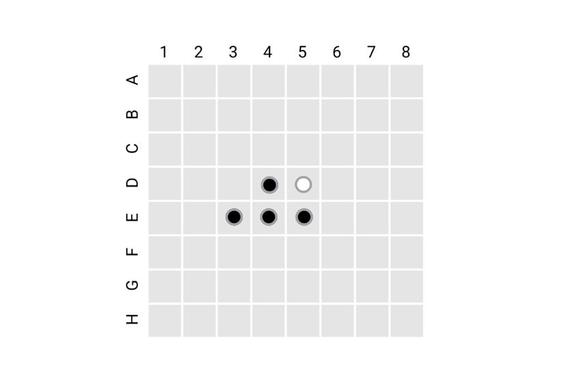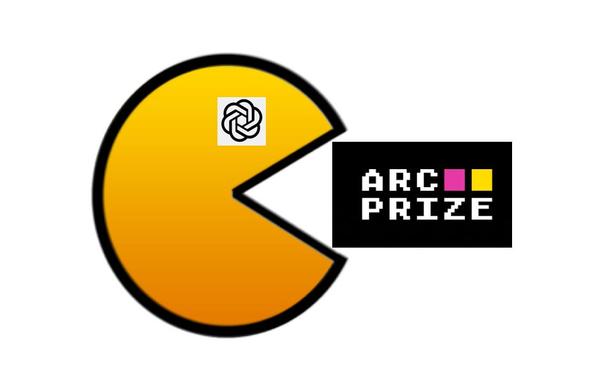#philAI
I just asked my #philAI students to discuss the claims that the will resides in the basal ganglia and agency in the parietal lobe.
RE: https://bsky.app/profile/did:plc:ubgit6dc7iwrk2wyqdmhbqqz/post/3ll7mdyzus224
Admissions are open for the second cohort of the Bachelor's in Philosophy and AI at Umeå University! (Only for EU/EEA/Swiss citizens)
A considerable part of the programme is in English, but several courses are in Swedish, so proficiency in a Scandinavian language is required.
More information about the programme here: https://www.umu.se/utbildning/program/kandidatprogram-i-filosofi-och-artificiell-intelligens/

I want my have my #philAI students create a custom chatbot (like you can with chatgpt). Two requirements: it should not require a paid subscription (a must) and there should be a simple tutorial to help them along (hopefully). I’d appreciate suggestions and advice.
Great analysis of Othello-GPT and the search for 'world models' in LLMs by M. Mitchell:
https://aiguide.substack.com/p/llms-and-world-models-part-2
>...I think it’s likely that humans don’t have the same capacity as today’s LLMs to learn enormous numbers of specific rules... it’s actually our human limitations—constraints on working memory, on processing speed, on available energy—as well as our continually changing and complex environments, that require us to form more abstract and generalizable internal models.

Using gemini to generate simple python code directly within google colab seems to work pretty well. I think I am going to try to have my #philAI students build their neural networks this way. No longer can they complain that they don't know how to program!
Had fun talking with my undergraduate students about the nature of intelligence, guided by @dcm.social.sunet.se.ap.brid.gy’s excellent ‘Intelligent Behaviour’. #PhilMind #PhilAI

After deciding to combine #philosophy of mind and AI in a single module AND reducing the number of lectures to one a week, we’re going through the material at quite a pace. Next week: phenomenal consciousness and bats! #PhilMind #PhilAI
Nice short essay by @melaniemitchell on the latest OpenAI models (o1 and o3) and their announced performance on some parts of the ARC benchmark.
https://aiguide.substack.com/p/did-openai-just-solve-abstract-reasoning
Putting to one side all the issues with lack of transparency and thus of proper testing given the proprietary nature of these models, the key question, as she points out, is: " Is o3 ... actually solving these tasks using the kind of abstraction and reasoning the ARC benchmark was created to measure?"

Next Tuesday I'll be presenting some work-in-progress of mine at the seminar series The Cognitive Science of Generative AI, organised by @UlrikeHahn
Title: Functional Ontologies for Explainable AI: lessons from Cognitive Science
Time: Jan 14, 16:00 GMT
Register for zoom link here: psyc.bbk.ac.uk/cccm/cccm-semin
All welcome!
#philAI #philcogsci
Hybrid talk announcement:
Céline Budding on *What do LLMs know about language?*
Friday Dec 13, 12:15-13:00 (CET), online and on campus
More info here: https://www.umu.se/en/events/fraiday-what-do-llms-know-about-language-_12009997/
All welcome!
Quick reminder about...
Talk by Susanna Schellenberg on *Reflexivity in AI Systems*
Friday, Nov 29th, 12:15-13:00 (CET)
On campus and on Zoom
More information and online registration here:
https://www.umu.se/en/events/fraiday-reflexivity-in-ai-systems_12006667/
All welcome!
*Upcoming Philosophy of AI talk*
Susanna Schellenberg will be giving a hybrid talk to Umeå's Centre for Transdisciplinary AI next week.
*Reflexivity in AI Systems*
Friday, Nov 29th, 12:15-13:00 (CET)
On campus and on Zoom
More information and online registration here: https://www.umu.se/en/events/fraiday-reflexivity-in-ai-systems_12006667/
All welcome!
Dennett (1989) anticipating ChatGPT:
"Consider an encyclopedia. It has derived intentionality. It contains information about thousands of things in the world, but only insofar as it is a device designed and intended for our use. Suppose we "automate" our encyclopedia, putting all its data into a computer and turning its index into the basis for an elaborate question-answering system. No longer do we have to look up material in the volumes; we simply type in questions and receive answers. It might seem to naive users as if they were communicating with another person, another entity endowed with original intentionality, but we would know better. A question-answering system is still just a tool, and whatever meaning or aboutness we vest in it is just a by-product of our practices in using the device to serve cur own goals. It has no goals of its own, except for the artificial and derived goal of "understanding" and "answering" our questions correctly."
“If there is intelligence in the vicinity of pencils, shoes, cigarette lighters, maps or calculators, it is the intelligence of their users and inventors. The digital is no different.” #PhilAI #AIEthics aeon.co/essays/can-c...
Can computers think? No. They ...
“If there is intelligence in the vicinity of pencils, shoes, cigarette lighters, maps or calculators, it is the intelligence of their users and inventors. The digital is no different.” #PhilAI #AIEthics https://aeon.co/essays/can-computers-think-no-they-cant-actually-do-anything

This Friday at 12.15 CEST I'll be hosting a talk by computer scientist Kary Främling, in which he will present his work on Explainable AI techniques for producing explanations useful to a variety of stakeholders, rather than only to AI experts.
The talk is hybrid, so even if you are not currently enjoying the very colourful (and very wet) autumn in Umeå, you can join nonetheless!
More information here: https://www.umu.se/en/events/fraiday-social-explainable-ai-how-can-we-make-it-happen-_11985341/
All welcome!
Great philosopher of cognitive science Nicholas Shea (also great PhD supervisor) has just published his second book, in open access, 'Concepts at the Interface'.
Link to the book: https://academic.oup.com/book/58062
It is about concepts, their roles in thinking, the frame problem, among much more. Highly recommended!

